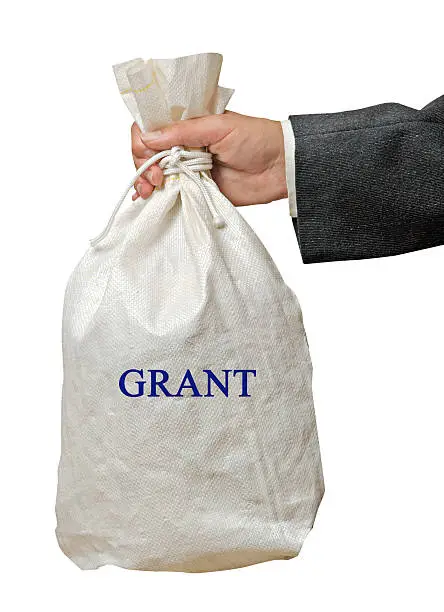- World Council of Churches (WCC):
- Focus Areas: Ecumenical and interfaith collaboration, social justice, humanitarian aid.
- Grant Programs: WCC often provides grants to churches engaged in projects that promote peace, justice, and sustainable development in Africa.
- African Church Asset Programme (ACAP):
- Focus Areas: Capacity building, infrastructure development, community empowerment.
- Grant Programs: ACAP offers grants to churches in Africa to strengthen their organizational capacity, support community development projects, and improve infrastructure.
- African Christian Health Associations Platform (ACHAP):
- Focus Areas: Healthcare initiatives, community health, disease prevention.
- Grant Programs: ACHAP supports churches involved in healthcare projects, with a focus on addressing public health challenges and improving access to medical services.
- World Vision International:
- Focus Areas: Child well-being, community development, emergency relief.
- Grant Programs: World Vision provides grants to churches working on projects related to child protection, education, healthcare, and community development in various African countries.
- Brot für die Welt (Bread for the World):
- Focus Areas: Poverty alleviation, sustainable development, human rights.
- Grant Programs: This German organization supports churches in Africa through grants for projects that aim to reduce poverty, promote sustainable development, and advocate for human rights.
- African Grantmakers Affinity Group (AGAG):
- Focus Areas: Education, economic development, social justice.
- Grant Programs: AGAG facilitates connections between grantmakers and churches in Africa, fostering partnerships that support education, economic empowerment, and social justice initiatives.
- African Ministers’ Fellowship International (AMFI):
- Focus Areas: Pastoral support, leadership development, community engagement.
- Grant Programs: AMFI may offer grants to churches for leadership development programs, pastoral support, and community engagement projects.
- Catholic Relief Services (CRS):
- Focus Areas: Emergency response, agriculture, health, education.
- Grant Programs: CRS provides grants to Catholic churches and affiliated organizations in Africa for projects that address humanitarian needs, promote sustainable agriculture, and improve healthcare and education.
- The Ford Foundation:
- Focus Areas: Social justice, economic development, human rights.
- Grant Programs: While not specifically targeted at churches, the Ford Foundation supports organizations working on social justice issues, and churches involved in community development may find support for their initiatives.
- United Nations Development Programme (UNDP):
- Focus Areas: Sustainable development, poverty reduction, gender equality.
- Grant Programs: UNDP collaborates with various partners to fund projects that align with the Sustainable Development Goals (SDGs), and churches engaging in development activities may find opportunities for support.
It’s essential for churches to thoroughly research each organization, understand their specific focus areas, and tailor grant proposals accordingly. Additionally, staying updated on grant opportunities through the organizations’ official websites or newsletters is crucial for maximizing the chances of successful applications.
How to Apply for the Grants
Securing grants for churches in Africa is a strategic process that requires thorough preparation, clear communication, and alignment with the mission and goals of both the church and the funding organization. In this comprehensive guide, we will explore the key steps and best practices on how to apply for grants, empowering churches to articulate their vision, enhance their community impact, and access the vital resources needed for sustainable development.
I. Research and Identify Suitable Grant Opportunities:
- Define Your Project:
- Clearly articulate the goals, objectives, and expected outcomes of the project for which you are seeking funding. Whether it’s community development, education, healthcare, or infrastructure, a well-defined project is the foundation of a compelling grant proposal.
- Identify Relevant Funding Organizations:
- Research and compile a list of organizations that align with the mission and focus areas of your church’s project. Consider factors such as the organization’s previous grant history, geographical preferences, and thematic priorities.
II. Understand Grant Requirements and Guidelines:
- Review Eligibility Criteria:
- Carefully read the eligibility criteria outlined by each funding organization. Ensure that your church meets the specified requirements in terms of location, project scope, and organizational status.
- Study Application Guidelines:
- Familiarize yourself with the application guidelines provided by the funding organization. Pay close attention to specific instructions regarding proposal format, required documentation, and deadlines.
III. Develop a Strong Proposal:
- Craft a Compelling Narrative:
- Clearly articulate the mission and vision of your church, emphasizing the positive impact your project will have on the community. Use a compelling narrative to convey the significance of your initiative.
- Outline Project Objectives:
- Clearly define the objectives of your project, detailing the activities you plan to undertake and the outcomes you aim to achieve. Ensure that your objectives align with the goals of the funding organization.
- Demonstrate Community Engagement:
- Emphasize the involvement of the local community in the planning and execution of the project. Highlight community needs assessments, stakeholder consultations, and the active participation of beneficiaries in the project design.
- Budgeting and Financial Planning:
- Provide a detailed budget for the project, breaking down costs and expenses. Be transparent about how the grant funds will be utilized, ensuring alignment with the organization’s guidelines.
IV. Build Partnerships and Collaborations:
- Engage with Local Stakeholders:
- Collaborate with local community leaders, government officials, and other relevant stakeholders. Demonstrating community support and partnerships can strengthen your proposal and enhance its credibility.
- Network with Other Churches and Organizations:
- Explore potential collaborations with other churches or non-profit organizations. Partnerships can broaden the impact of your project and strengthen your application.
V. Submission Process:
- Prepare and Organize Documentation:
- Gather all required documents, including the completed proposal, organizational certificates, financial statements, and any additional materials specified in the application guidelines. Ensure that all documentation is accurate and up-to-date.
- Submit Application Before the Deadline:
- Adhere to the specified deadline for submission. Submit your application electronically or by mail as per the organization’s instructions. Late submissions are typically not considered, so plan accordingly.
VI. Follow-Up and Communication:
- Confirmation and Acknowledgment:
- After submitting your application, confirm receipt with the funding organization. Ensure that you receive an acknowledgment of your submission.
- Follow-Up Communication:
- Periodically follow up with the funding organization regarding the status of your application. If applicable, be responsive to any requests for additional information or clarification.
The Impact of Grants on Churches in Africa
Grants for churches in Africa are not just financial injections; they are catalysts for transformative impact, unlocking doors to community development, social change, and sustainable growth.
I. Strengthening Spiritual Foundations:
- Renovating Sacred Spaces:
- Grants provide churches with the means to renovate and beautify their places of worship, creating an environment that fosters spiritual growth and community cohesion.
- Expanding Ministries:
- With grant support, churches can expand their ministries, reaching more people with messages of hope, love, and spiritual guidance. This expansion often leads to increased community engagement and strengthened bonds among congregants.
II. Empowering Community Development:
- Education Initiatives:
- Grants enable churches to establish and enhance educational programs, from building schools to providing scholarships. This impact extends beyond the church walls, positively influencing the educational landscape of the entire community.
- Healthcare Access:
- Churches, with the help of grants, contribute to healthcare initiatives such as building clinics, organizing medical camps, and promoting health awareness. The impact is felt in improved health outcomes and a community better equipped to handle health challenges.
III. Building Sustainable Infrastructure:
- Infrastructure Upgrades:
- Grants facilitate the improvement of church infrastructure, including the construction of community centers, water facilities, and roads. These upgrades not only benefit the church but also contribute to the overall development of the surrounding areas.
- Technology Integration:
- Churches harness grants to integrate technology into their operations, enabling better communication, outreach, and organizational efficiency. This, in turn, empowers the church to adapt to the digital age and connect with a wider audience.
IV. Economic Empowerment:
- Income-Generating Projects:
- Grants support churches in launching income-generating projects, such as agricultural initiatives, vocational training, and micro-enterprises. This economic empowerment creates sustainable sources of income for both the church and the community.
- Job Creation:
- Through grants, churches contribute to job creation by initiating projects that hire and train community members. This has a ripple effect on poverty reduction and economic stability.
V. Fostering Social Justice:
- Advocacy and Awareness Campaigns:
- Churches, supported by grants, engage in social justice initiatives, advocating for human rights, equality, and the fair treatment of marginalized groups. The impact resonates in policy changes and a more just and inclusive society.
- Community Empowerment Programs:
- Grants facilitate community empowerment programs that equip individuals with skills, knowledge, and resources to overcome challenges. This empowerment contributes to breaking cycles of poverty and promoting self-sufficiency.
VI. Humanitarian Aid and Emergency Response:
- Disaster Relief:
- Churches, backed by grants, play a crucial role in providing immediate assistance during disasters. Whether through food distribution, shelter provision, or medical aid, the impact is felt in the timely and effective response to emergencies.
- Refugee Support:
- Grants enable churches to support refugees and internally displaced persons, offering them not just material aid but also a sense of community and belonging during times of crisis.
Tips for Writing a Successful Grant Proposal
Writing a successful grant proposal is an art that requires a strategic blend of passion, precision, and persuasive communication. Whether you’re a church in Africa seeking funds for community development or a nonprofit organization aiming to make a positive impact, the key to success lies in a well-crafted proposal.
In this guide, we will explore essential tips for writing a grant proposal that captivates funders, clearly communicates your vision, and maximizes your chances of securing the support your project deserves.
I. Understand the Funding Organization:
- Thorough Research:
- Before putting pen to paper, invest time in thoroughly researching the funding organization. Understand their mission, focus areas, and priorities. Tailor your proposal to align seamlessly with their values and objectives.
- Review Previous Awards:
- Analyze previous grants awarded by the organization. Identify common themes, successful project types, and any specific criteria that seem to resonate with the funding body. This insight will guide the tone and content of your proposal.
II. Clearly Define Your Project:
- Precise Project Objectives:
- Clearly define the objectives of your project. Avoid vague language and ensure that your goals are specific, measurable, achievable, relevant, and time-bound (SMART).
- Alignment with Organization’s Mission:
- Explicitly demonstrate how your project aligns with the mission and goals of both your organization and the funding body. Showcase the shared values that make your project a perfect fit.
III. Engage Your Audience:
- Compelling Narrative:
- Craft a compelling narrative that tells the story of your organization and the impact your project aims to achieve. Appeal to the emotions of your readers, helping them connect with your cause on a personal level.
- Highlight Community Involvement:
- Emphasize community engagement in your proposal. Showcase how the local community is actively involved in the project’s planning, execution, and sustainability. This demonstrates a collaborative and inclusive approach.
IV. Demonstrate Feasibility:
- Realistic Budgeting:
- Present a realistic and detailed budget. Clearly outline how the grant funds will be utilized, providing transparency and accountability. Ensure that your budget aligns with the scope and scale of your project.
- Timeline and Milestones:
- Provide a comprehensive timeline with key milestones. This helps funders understand the project’s progress and demonstrates your organization’s commitment to timely and effective implementation.
V. Showcase Organizational Capacity:
- Leadership and Expertise:
- Highlight the qualifications and expertise of your organization’s leadership. Showcase the skills and experience that make your team well-suited to execute the proposed project successfully.
- Previous Achievements:
- Share the successes of your organization’s past projects. Demonstrate your track record in delivering positive outcomes and the ability to effectively utilize grant funds.
VI. Address Potential Challenges:
- Risk Mitigation Strategies:
- Anticipate potential challenges and outline clear strategies for risk mitigation. Demonstrating foresight and preparedness enhances the credibility of your proposal.
- Open Communication:
- Be transparent about any potential challenges your organization may face. Open communication builds trust and shows that you are realistic about the complexities of project implementation.
VII. Follow Application Guidelines:
- Adherence to Formatting Requirements:
- Carefully follow the application guidelines provided by the funding organization. Pay attention to formatting requirements, document submission instructions, and any specific details they may request.
- Proofread and Edit:
- Thoroughly proofread your proposal to eliminate errors and ensure clarity. A well-edited proposal demonstrates professionalism and attention to detail.
VIII. Seek Feedback:
- Peer Review:
- Before submission, seek feedback from colleagues or peers. Fresh perspectives can identify areas for improvement and strengthen the overall quality of your proposal.
- Funder Communication:
- If permissible, engage in communication with the funding organization before submission. Seek clarification on any uncertainties and establish a positive rapport with the funding body.
Conclusion:





I have recently started a website, the information you offer on this website has helped me greatly. Thank you for all of your time & work.